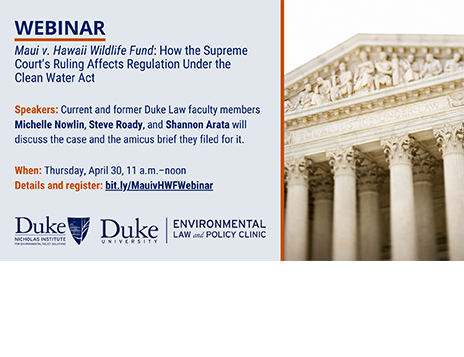About
On April 23, the U.S. Supreme Court issued an opinion in County of Maui v. Hawaii Wildlife Fund that found a point source discharge of pollutants into groundwater, that then reaches navigable waters, is regulated under the Clean Water Act. Writing for the Court's majority, Justice Stephen Bryer said the Clean Water Act requires a permit "if the addition of the pollutants through groundwater is the functional equivalent of a direct discharge from the point source into navigable waters."
Three current and former Duke Law School faculty members—Michelle Nowlin, Steve Roady, and Shannon Arata—submitted an amicus brief supporting the eventual majority opinion. Hear from all three about the details of the case and the potential effects of the ruling on how the Clean Water Act is applied going forward.
This webinar was co-sponsored by Duke University's Nicholas Institute for Environmental Policy Solutions and the Duke Environmental Law and Policy Clinic. A video will be available soon.


